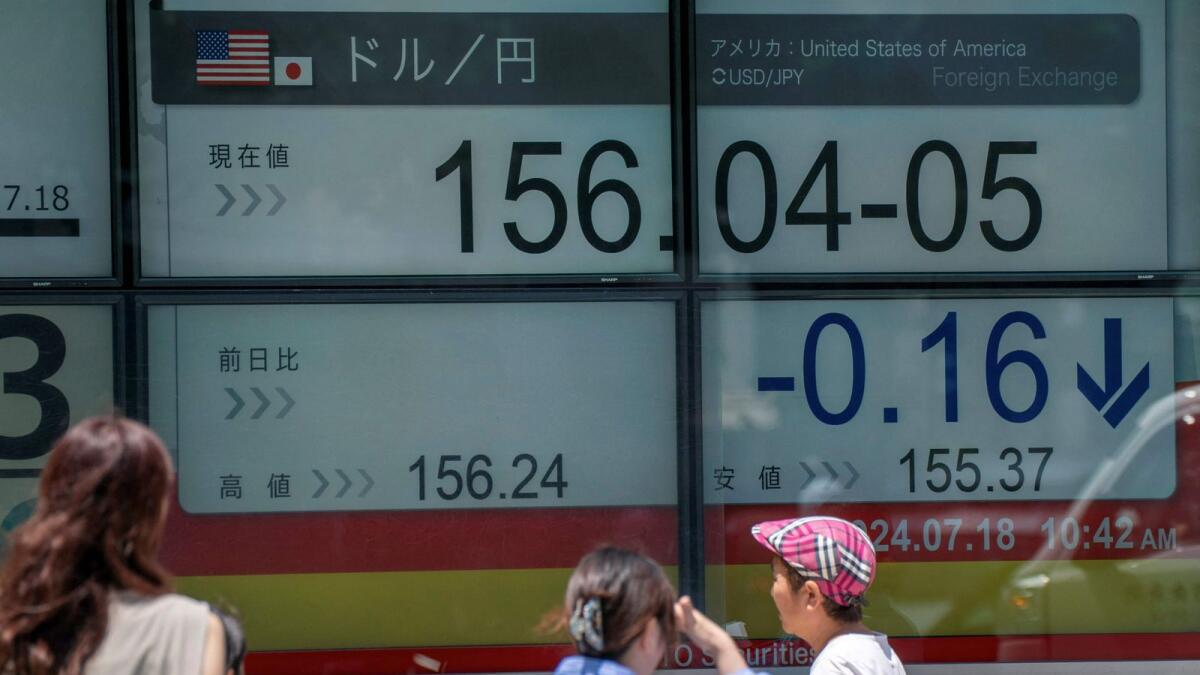Asian equities faced a decline on Thursday, with chip stocks leading the way, as investors expressed concerns over escalating trade tensions between the U.S. and China. This situation led to the yen climbing to a six-week high following suspected interventions by Tokyo. The U.S. dollar remained close to its weakest point in four months against a basket of currencies, with comments from Federal Reserve officials indicating a potential rate cut in September, keeping gold prices near record highs. MSCI’s broadest index of Asia-Pacific shares outside Japan fell by 0.63%, with tech stocks experiencing a significant decline in countries like South Korea and Taiwan. Japan’s Nikkei also dropped by over 2% due to the yen’s strength and the sharp decrease in chip stocks.
There was a report that the U.S. was considering tightening restrictions on the export of advanced semiconductor technology to China, leading to a significant sell-off in chip stocks and causing the Nasdaq to tumble. This volatility in the market has prompted some investors to reduce their risks as they worry about overextended positions. European markets were expected to have a mixed open, with investors awaiting the policy decision from the European Central Bank later in the day. The bank is predicted to maintain its current rates, but comments from officials will be crucial in determining the timing of any future rate cuts.
Republican presidential candidate Donald Trump’s statements regarding Taiwan’s involvement in the chip business and defense caused broader risk sentiment to take a hit among investors. China’s stock market fluctuated as investors awaited policy news from a key leadership gathering in Beijing, with the Shanghai Composite index dropping slightly and the blue-chip CSI300 index slightly increasing. Investors are fully pricing in a 25 basis point rate cut by the Federal Reserve in September, following comments from officials signaling the likelihood of interest rate reductions. This ongoing speculation has put pressure on the dollar, with the euro remaining steady near a four-month high.
The yen surged to a six-week high against the dollar, with traders suspecting that Japanese authorities were intervening to support the currency. Bank of Japan data suggested that Tokyo may have bought nearly 6 trillion yen last week to prevent the yen from reaching 38-year lows. The yen has depreciated by 9.5% against the dollar this year due to the interest rate discrepancy between the U.S. and Japan, creating trading opportunities like carry trade, where traders borrow yen at low rates to invest in dollar assets for higher returns. However, some analysts believe that Tokyo’s recent actions may prompt traders to unwind some of their positions and cause discomfort for carry traders.
In the commodities market, gold prices remained near record highs, while oil prices saw an increase, with Brent futures and U.S. West Texas Intermediate (WTI) crude gaining value. Overall, the market continues to be influenced by trade tensions between the U.S. and China, expectations of a rate cut by the Federal Reserve, and intervention efforts by Japanese authorities to support the yen. Traders and investors are closely monitoring these developments to navigate the volatile market conditions and adjust their strategies accordingly.











